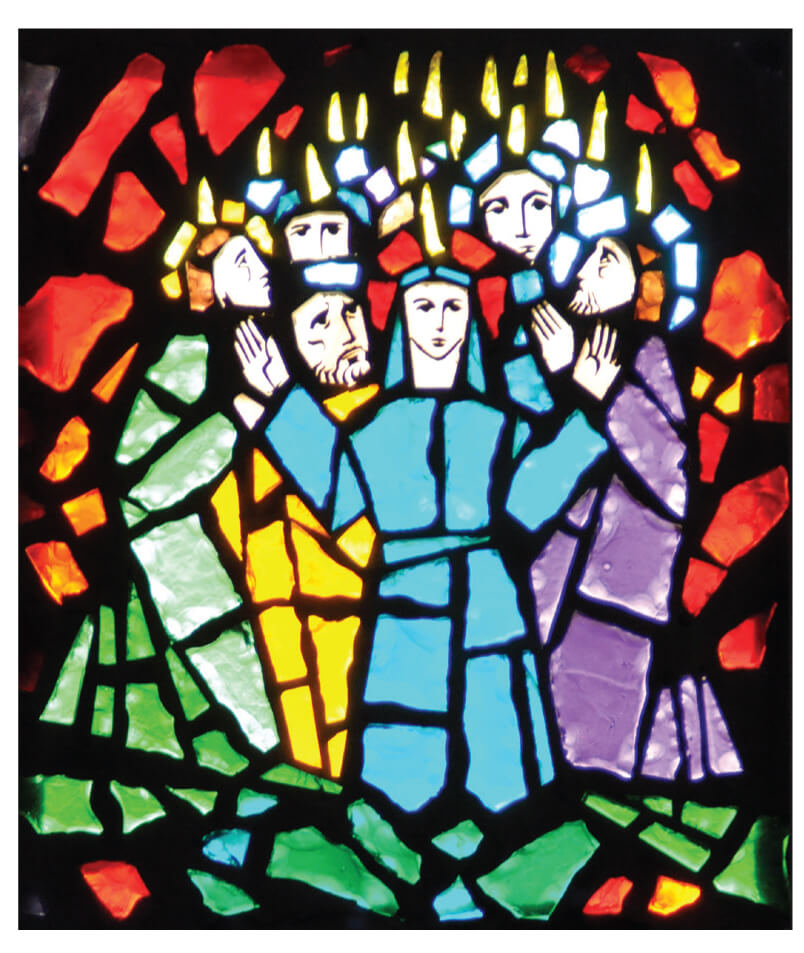
The Feast of Pentecost is not only about Jesus’ disciples finding a motivating mission but about their finding voice—words for expressing their experience of Jesus.
Any powerful, spiritual experience defies words. The awe one feels at a baby’s birth or at a mountain view can’t be wholly communicated. Yet finding one’s voice is essential to finding one’s identity and practicing personal power. In the power of the Holy Spirit Jesus’ disciples find irrepressible voices for their lived experience of his ministry, death, and resurrection.
Luke pictures 120 of Jesus’ men and women disciples, including Jesus’ mother, gathered in a room, awaiting the Spirit Jesus promised them when he returned to God. The wind and fire of the Spirit transform the community from voiceless expectation to fiery speech.
The Jews that form the crowd hear them in their own languages. These visitors have come to Jerusalem for the feast from every direction—from Mesopotamia in the east and Egypt in the south, from Rome and Libya to the west, from Pamphylia to the north. The listeners come from areas to which Jesus’ fiery preachers will spread his message.
At Pentecost, the lived experience of Jesus’ followers begins to become speech—sermons, stories, parables, dialogs, hymns. Over the first century this fiery speech is handed on and develops into the New Testament.
The Pentecost event continues in our time as we still translate and hear Jesus’ good news in every language today. We continue Pentecost as we interpret this word for our lives.
Fiery tongues, new speech
When the day of Pentecost was being fulfilled, they were all together in one place. And suddenly from heaven there came a sound like the rush of a violent wind, and it filled the entire house where they were sitting. Divided tongues, as of fire, appeared among them, and a tongue rested on each of them. All of them were filled with the Holy Spirit and began to speak in other languages, as the Spirit gave them ability.
Now there were devout Jews from every nation under heaven living in Jerusalem. And at this sound the crowd gathered and was bewildered, because each one heard them speaking in the native language of each. Amazed and astonished, they asked, “Are not all these who are speaking Galileans? And how is it that we hear, each of us, in our own native language? Parthians, Medes, Elamites, and residents of Mesopotamia, Judea and Cappadocia, Pontus and Asia, Phrygia and Pamphylia, Egypt and the parts of Libya belonging to Cyrene, and visitors from Rome, both Jews and proselytes, Cretans and Arabs—in our own languages we hear them speaking about God’s deeds of power.”
Acts 2.1-11
- Around what issues does your tongue catch fire when you are discussing?
- In your experience what fire do the gospels hold, what power to bring people to faith that Jesus is Lord?
